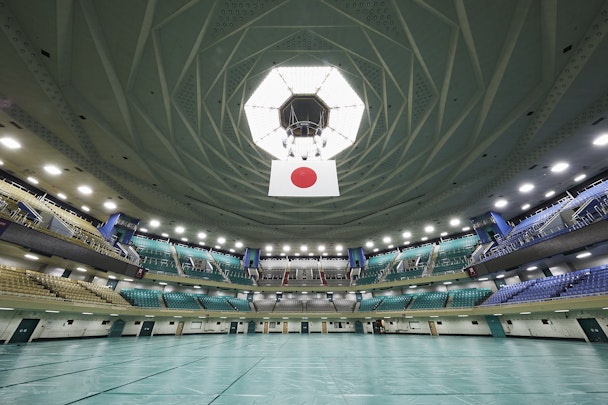How brands can (legally) hijack the Tokyo 2020 Olympics
24 July 2019 marks one year until the Tokyo 2020 Olympic Games kick-off. So what can brands do to capitalise on one of the world’s most tightly regulated events?

How brands can (legally) hijack the the Tokyo 2020 Olympics
The International Olympic Committee (the IOC) takes the protection of their intellectual property very, very seriously. As part of the application process, all hopeful hosts of the Olympics and Paralympic Games have to provide extensive governmental assurances that they will protect the IOC’s IP - already some of the most legally protected IP in the world.
Applicants are even asked to confirm what options they’ve already secured over advertising space within a 500m radius of proposed venue sites and on public transport, almost a decade ahead of time. If the IOC is dissatisfied with any of this, the potential host will simply be left on the starting blocks.
The purpose of this incredible due diligence is to protect official sponsors, who pay vast sums to associate themselves with the Games, from ambush marketers. In addition to governmental protections, ticketing terms and conditions are usually drafted in such a manner as to permit the hosts to eject spectators from inside venues should they be suspected of participating in ambush marketing initiatives.
Even sponsoring talent isn’t enough, as the controversial (although recently softened) “Rule 40” of the IOC Charter, imposes restrictions on those participating in the Games from taking part in advertising, or allowing their name or image to be used for advertising purposes, during the Games, unless the advertising is for an official sponsor. The precise extent of the Rule 40 restriction that will apply at Tokyo 2020 will be determined once further guidance is issued, but it is reasonable to expect that the IOC will maintain significant control and protection, albeit less than the outright ban of years gone by.
So considering this context, it’s hardly surprising that it’s difficult for brands to capitalise on the global buzz around the Games without having the extremely deep pockets that are necessary to become an official sponsor. However, if you can get your head around the vast rules and regulations, there are a few creative opportunities.
The best first step is to appreciate what the IOC believes that brands are not permitted to do. This is most simply set out within the Brand Protection Guidelines issued by the Tokyo Organising Committee, which I’d suggest any hopeful marketer read. It covers the use of words such as 'Tokyo 2020', 'Olympics' and 'Paralympics', mottos or even using terms such as 'Go for the gold', 'Countdown to 2020' or anything ending with '-lympics'.
While these guidelines may go beyond the IOC’s legal rights, they clearly set out the battle lines. Brands should be wary of operating too closely to these - the IOC is notoriously aggressive and, in the past, has pursued targets such as a London butcher for displaying a picture of five interlinked sausage rings.
Brands should also be mindful of general laws around trademarks and copyright but, more importantly, around “passing off” - i.e. creating material that implies a relationship between a brand and the Games. While it may not be an infringement to say 'Tokyo', '2020' and 'Gold' individually, if mentioned together, the matter could constitute passing off. Further, official hashtags also often have legal protection and sending athletes or teams public messages of congratulations could constitute an infringement of so-called rights of publicity.
While advertising activity in Japan will carry the most risk, those operating online or in social media are not safe. Although it is certainly true to say that the further your brand is from Japan and the smaller your brand is, the more likely it is that you’ll get away with it.
With the above in mind, brands should be looking to make creative use of generic things, such as events, flags and countries (without making use of team names, such as 'Team GB', which has trademark protection). Essentially, make people think of the Games, but not too much.
There’s also the opportunity to engage athletes, while being mindful of the Rule 40 restrictions. Many brands in the past have run campaigns with athletes in the lead up to the Games, without specifically making reference to the Olympics or Paralympics. And, almost as soon as the Games are over, athletes are once again up for grabs, so to speak. A well-timed ad campaign that kicks off as soon as the Rule 40 restriction is lifted could grab a large share of attention.
Working with former athletes or famous names - including influencers - can offer a brand relevance to the Games, and they would, of course, not be subject to Rule 40. Or, brands could take a long-term gamble, investing in young talent and would-be stars and, if they pick up a gold medal, it's these brands that will benefit from the association.
There have been some successes in ambush marketing to take inspiration from. We’ve seen brands like Beats by Dre gifting athletes with the latest must-have, super vibrant items so that they're seen by millions on TV. During London 2012, Paddy Power ran a campaign that focused on different cities called London - they incurred the wrath of the games organisers (and the PR that came with it), but ultimately the campaign was not stopped. Another route for brands could be to focus more broadly on the culture of the host country, rather than the city itself while being mindful of what they can and can’t say.
The ‘ambush’ approach is often risky, given that it’s a clear attempt to take advantage of goodwill around the Olympics and Paralympics without paying for the right to do so, but with the right creative idea, you could take gold… erm, first prize, even on a limited budget.
Darryl Taylor is general counsel of We Are Social.
